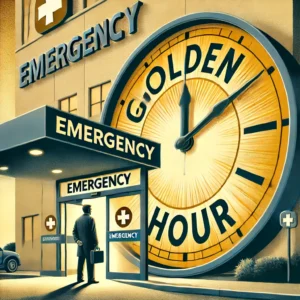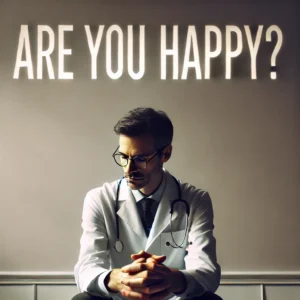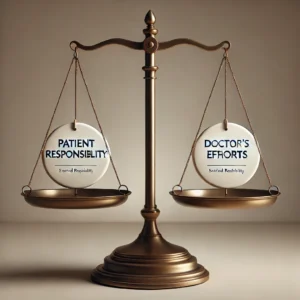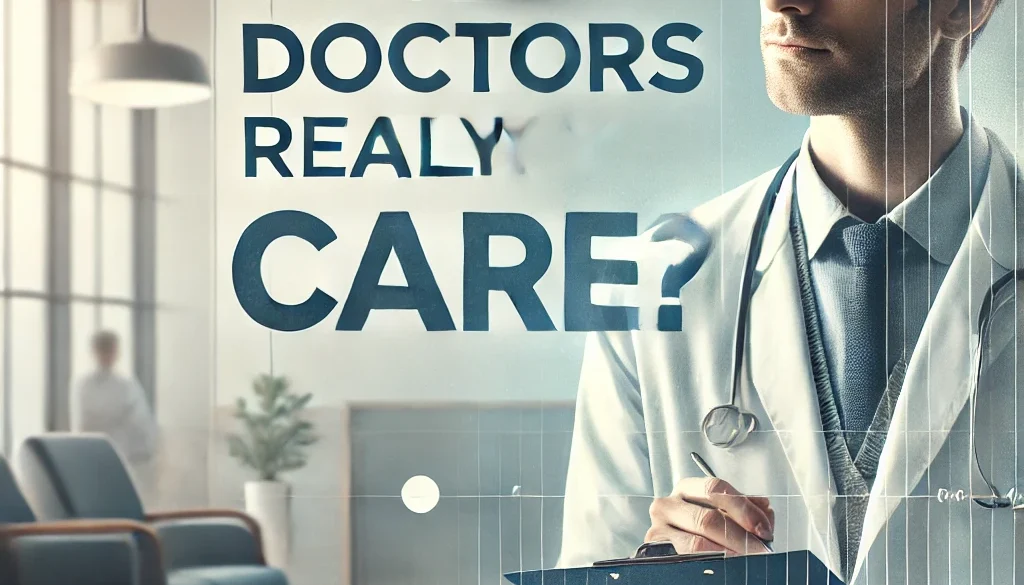Do Doctors Really Care? A Doctor’s Perspective on the Expectations We Face.
A Doctor’s Perspective on the Criticism We Face
Every day, we wake up, put on our white coats, and walk into a world where lives are quite literally in our hands. We spend our days—and often our nights—doing our best to heal, to comfort, and to make decisions that can change the course of a patient’s life. But recently, it feels like more often than not, we’re also facing blame, suspicion, and even hostility.
Patients blame us for their anxiety, for their fears about what they read online, and even for the outcomes of conditions we try our hardest to treat. But is all this really fair? Are doctors truly to blame for all these worries? As a doctor, I want to share what it’s like from my side of the exam room—and maybe, start a new conversation between us.
Blaming Doctors’ Handwriting: Is It Really the Problem?

There’s a reel going around on social media that caught my attention. It talks about how patients feel more anxious these days because doctors give out printed discharge summaries. The argument goes, that with handwritten notes, patients couldn’t always read what we wrote, so they didn’t understand the terms well enough to look them up online. But now, with printed notes that clearly state their diagnosis, patients often turn to the internet for answers—and end up feeling more anxious than ever.
I understand that seeing words like “hypertension” or “chronic illness” spelled out can be intimidating. And yes, the internet can be a scary place when you’re researching medical conditions. But are these printed notes really the root of the problem? Is it really our fault that you’re able to look things up now?
I think there’s more to it than that. Perhaps it’s about how we handle information in this digital age. Maybe instead of turning to search engines that list out worst-case scenarios, we could have more open conversations. Next time you feel worried about something you read online, why not bring it up during your next appointment? Let’s talk it through together.
What It’s Really Like to Be a Doctor Today .

There’s something you may not see in your doctor’s eyes when they’re standing in front of you. It’s the weight of countless experiences—times when we couldn’t save a patient, or when we had to deliver difficult news to a family. Recently, I’ve seen more incidents where doctors are confronted by patients or their families, often in their moments of deepest grief.
It’s understandable that you’d want answers when something goes wrong. But is it fair to place all the blame on doctors when outcomes aren’t as hoped? We’re doing our best with the tools we have, using all our training and experience. But we are not magicians. Sometimes, medicine has its limits, and we have to accept that not every story has a happy ending.
Shouldn’t there be room for compassion and understanding, even when the news is hard to hear? If we can’t always change the outcome, can we at least change how we support each other through those difficult times?
The Golden Hour: Are We Blamed for Delays We Can’t Control ?

Let’s talk about the golden hour. This is the time when getting to the hospital quickly can make all the difference. Heart attacks, strokes, trauma—they all require immediate attention. But sometimes, patients wait too long to seek help. They ignore symptoms, try home remedies, or hope that it will just get better on its own. And by the time they reach us, it’s too late to reverse the damage.
When this happens, families often blame us for not being able to save their loved ones. But what if they had come in earlier? Should we be held responsible for the decisions made before the patient ever reached the hospital doors?
I wish more people understood how crucial that first hour can be. We can only do so much when precious time has already been lost. Perhaps the conversation should also be about how we can recognize the signs early and seek help right away, so that we can work together for the best possible outcome.
The Question No One Asks Us: Are We Happy ?

“Are you happy?” That question might sound simple, but it can mean everything. There’s a scene in the movie Avesham where this question is repeatidily asked , and it really struck me. As doctors, we face so many questions every day—about symptoms, medications, treatment plans. But rarely, if ever, does someone stop to ask, “Are you happy?”
You see, we are expected to be strong, to be unshakeable. But underneath that professional mask, many of us are tired, stressed, and sometimes even overwhelmed. We deal with the weight of people’s pain and fears, and the pressure to always get it right can be crushing. But we keep going because we care about our patients.
Those three words—“Are you happy?”—might seem small, but they hold a lot of power. They remind us that we matter too, that our feelings are important. When was the last time someone asked a doctor how they’re doing?
And maybe it’s time for us to start being honest when asked that question. We’re human too, with our own struggles, and acknowledging that might just help us provide better care.
Let’s Change the Conversation About Healthcare.

Being a doctor isn’t easy, and I don’t expect sympathy. But I do hope we can shift the conversation. Let’s stop pointing fingers and start asking the right questions. Let’s work together to make sure we’re doing everything we can—both in the doctor’s office and at home—to get the best care possible.
I promise that we care. We care more than you might know. But if we can have more open conversations and if we can see each other as partners in health, maybe we can make things a little easier for everyone.
So, what do you think? Can we build a better relationship between doctors and patients? Can we make healthcare a little less about blame and a little more about understanding?
“Have you ever felt anxious after reading about a diagnosis online? How did you handle it? Share your story in the comments below.”
“If you’re a healthcare professional, what’s the one thing you wish patients understood about your job? Let us know!”




October 23, 2024 @ 11:23 am
Very Nice Article authored by Dr Neeraj that emphasizes the role of Doctors vis-a-vis patients. Needless to say, respect, trust, and ethical behavior are essential in the doctor-patient relationship. While competition in any industry can be a healthy force, it’s important to ensure it doesn’t compromise these core values.